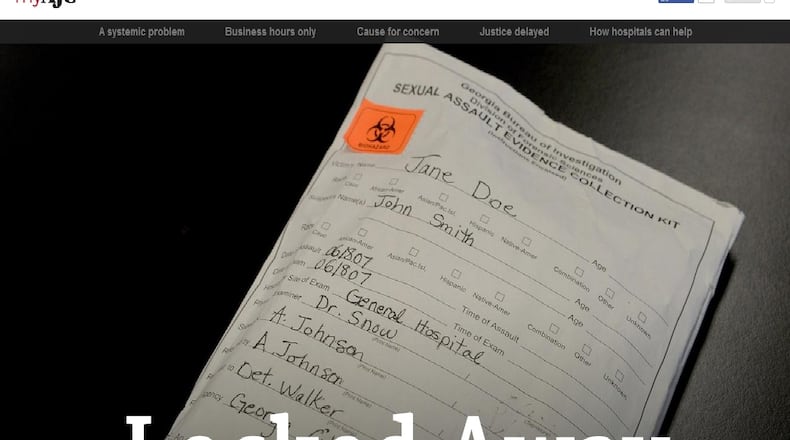Grady Memorial’s troubles with rape victims are even worse than the hospital previously acknowledged.
In June, an Atlanta Journal-Constitution investigation revealed that Grady hospital failed to tell police about as many as 1,500 possible sex crimes. Since 2000, staff has been locking away evidence in file cabinets, even when victims requested the hospital share it with law enforcement.
Now there’s good news, bad news, and very bad news on this front.
First the good news: Grady has told the AJC that it decided to release most of their rape kits to law enforcement.
Now the bad news: Initially, hospital acknowledged that more than 130 of these victims ask that their rape kits be shared, but their evidence never made it to investigators. Now they acknowledge that more than 1,000 made these requests. You can read about this good news and bad news in today's story.
And the very bad news: We discovered that Grady has billed hundreds of victims for forensic exams they are supposed to receive free of charge. These exams collect bodily fluids, hair and other DNA evidence for rape kits to use in a criminal investigation. Billing rape survivors is as fair as making a shooting victim pay to dust a gun for fingerprints.
How did the AJC find out? When I began reporting on the June story about Grady’s failure to alert police to possible sex crimes, I wanted to find out how many sexual assault forensic exams the hospital had performed in recent years. Grady provided its numbers to me, but I prefer to verify data from multiple sources when I can. I knew that in Georgia, medical facilities are supposed to send exam bills to the statewide victims’ compensation fund. Making an open records request for the billing database should have been a quick way to get statistics for Grady and other hospitals across the state.
I didn’t get what I wanted. What I did get was far more interesting. The database told me that the victims’ compensation fund had never made a single payment to Grady.
This raised a big red flag. Grady said it was performing hundreds of exams. Who was paying for them?
Our latest story will tell you what went wrong. You can read it on myAJC.com.
About the Author
Keep Reading
The Latest
Featured


